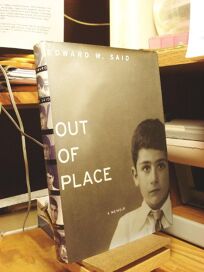Filmmakers: Heba Bourini and Mohammad JameelBorn to affluent parents in Palestine under the British mandate in 1935, Edward W Said devoted his adult life to. A Christian Palestinian in Cairo with a proper British name and a father with American citizenship, the young Said felt out of place early on. Said is an insightful and close observer of the details of daily life that create an entire mood in a people or family.
Sample Essay
Words 1,329
This is an essay on Out of Place by Edward Said. Information of Edward Said’s his early life, have been given huge symbolic and politically-charged meaning both by Said himself and by some of his fiercest critics. For him too, more the circumstances of his past and present were continuously symbolized in his writing. Certainly an ever more crucial element in his style and approach came to be the close association of the personal account with the theoretical and the political.
Information of Edward Said’s his early life, have been given huge symbolic and politically-charged meaning both by Said himself and by some of his fiercest critics. For him too, more the circumstances of his past and present were continuously symbolized in his writing. Certainly an ever more crucial element in his style and approach came to be the close association of the personal account with the theoretical and the political.
Said was a symbol of the Palestinian upper middle class, his father a prosperous businessman. The family was also Protestant – members of the Anglican association in Palestine, though his maternal grandfather was a Baptist minister in Nazareth and his parents were married in that church, while some other close relatives were Catholics – so that as a Protestant among generally Eastern Orthodox Palestinian Christians, among Muslim Palestinians, themselves soon to be a minority among Jewish Israelis, Said was in such a unique position which has been in the long run prominent for his view of the world.

Yet his was, concurrently, a highly fortunate minority in both class and confessional terms. As was typical of that setting, the family was geographically mobile. His father, Wadie Ibrahim Said, a native Jerusalemite, had left Palestine at the age of sixteen to flee the Ottoman military draft.
Kindly order custom made Essays, Term Papers, Research Papers, Thesis, Dissertation, Assignment, Book Reports, Reviews, Presentations, Projects, Case Studies, Coursework, Homework, Creative Writing, Critical Thinking, on the topic by clicking on the order page.
Edward Said States
See also
Out Of Place Edward Said Quotes
Edward Said is one of the most celebrated cultural critics of the postwar world. Of his many books of literary, political, and philosophical criticism, Orientalism--a brilliant analysis of how Europe came to dominate the Orient through the creation of the myth of the exotic East--and the monumental Culture and Imperialism are the best known. His books have redefined readers' understanding of the impact of European imperialism upon the shape of modern culture. Said's career as a thinker spans literature, politics, music, philosophy, and history. As a dispossessed Palestinian growing up in the Middle East and subsequently living in the USA, he has witnessed the impact of the Second World War upon the Arab world, the dissolution of Palestine and the birth of Israel, the rise of Nasser and the PLO, the Lebanese Civil War, and the faltering peace process of the 1990s. As a result, the publication of Said's memoirs, Out of Place, is a particularly significant event. The book offers a fascinating account of the personal development of a critic and thinker who has straddled the divide between East and West, and in the process has redefined Western perceptions of the East and of the plight of Palestinian people.
However, as the title suggests, Said's memoir is a far more ambivalent and at times personally painful account of his early years in Palestine, Egypt, and Lebanon, as well as the often paralyzing embrace of his loving but overbearing parents. Said's memoirs are powerfully informed by his sense of personally, geographically, and linguistically 'always being out of place.' Born to Christian parents and caught between expressing himself in Arabic, English, and French, he evokes a vivid, but often very unhappy, portrait of growing up in Cairo and Lebanon under the crushing weight of his emotionally intense and ambitious family. The early sections of the book paint a poignant picture of the oppressive regime established over the awkward, painfully uncertain young Edward by his loving mother and expectant, unforgiving father, both of whom cast the longest emotional shadows over the book. Those expecting an account of Said's subsequent intellectual development will be disappointed; apart from the final 50 pages, which deal with Said's education at Princeton and Harvard, Out of Place is, as Said himself says, primarily 'a record of an essentially lost or forgotten world, my early life.' It is this carefully disclosed record that accounts for Said's deeply ambivalent relationship with both his family and the Palestinian cause. Composed in the light of serious illness, Out of Place is an elegantly written reflection on a life that has movingly come to terms with 'being not quite right and out of place.'
